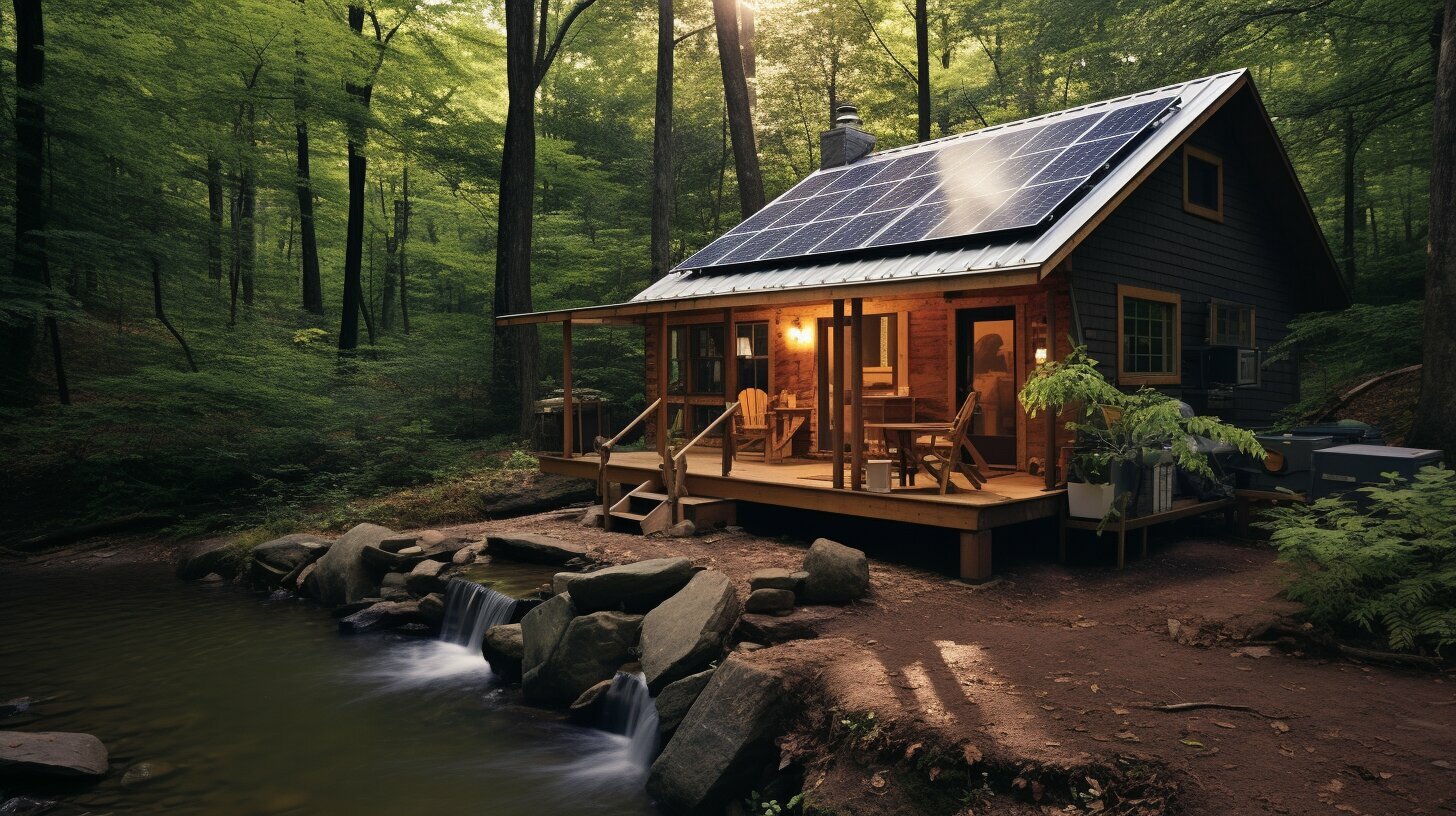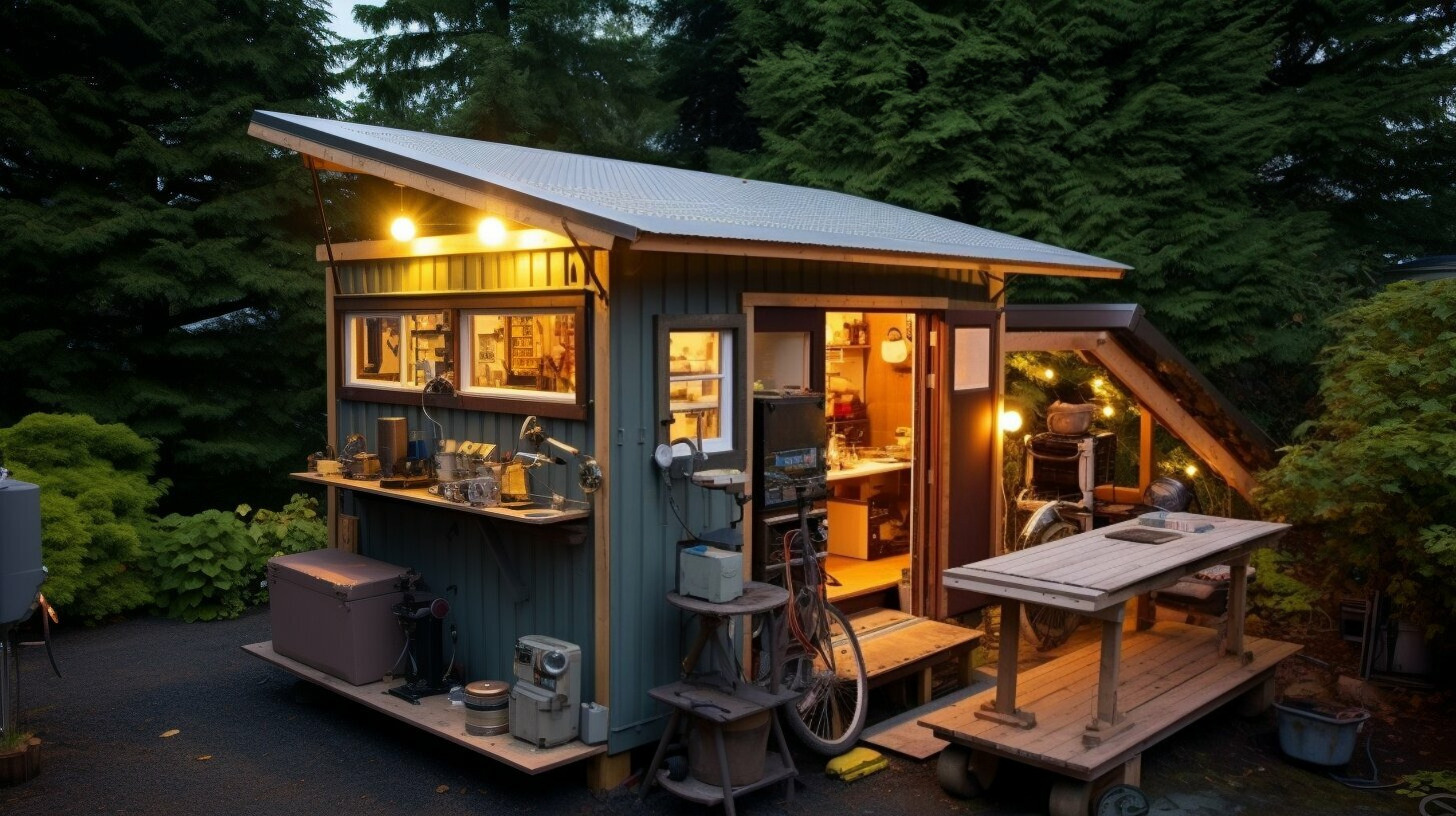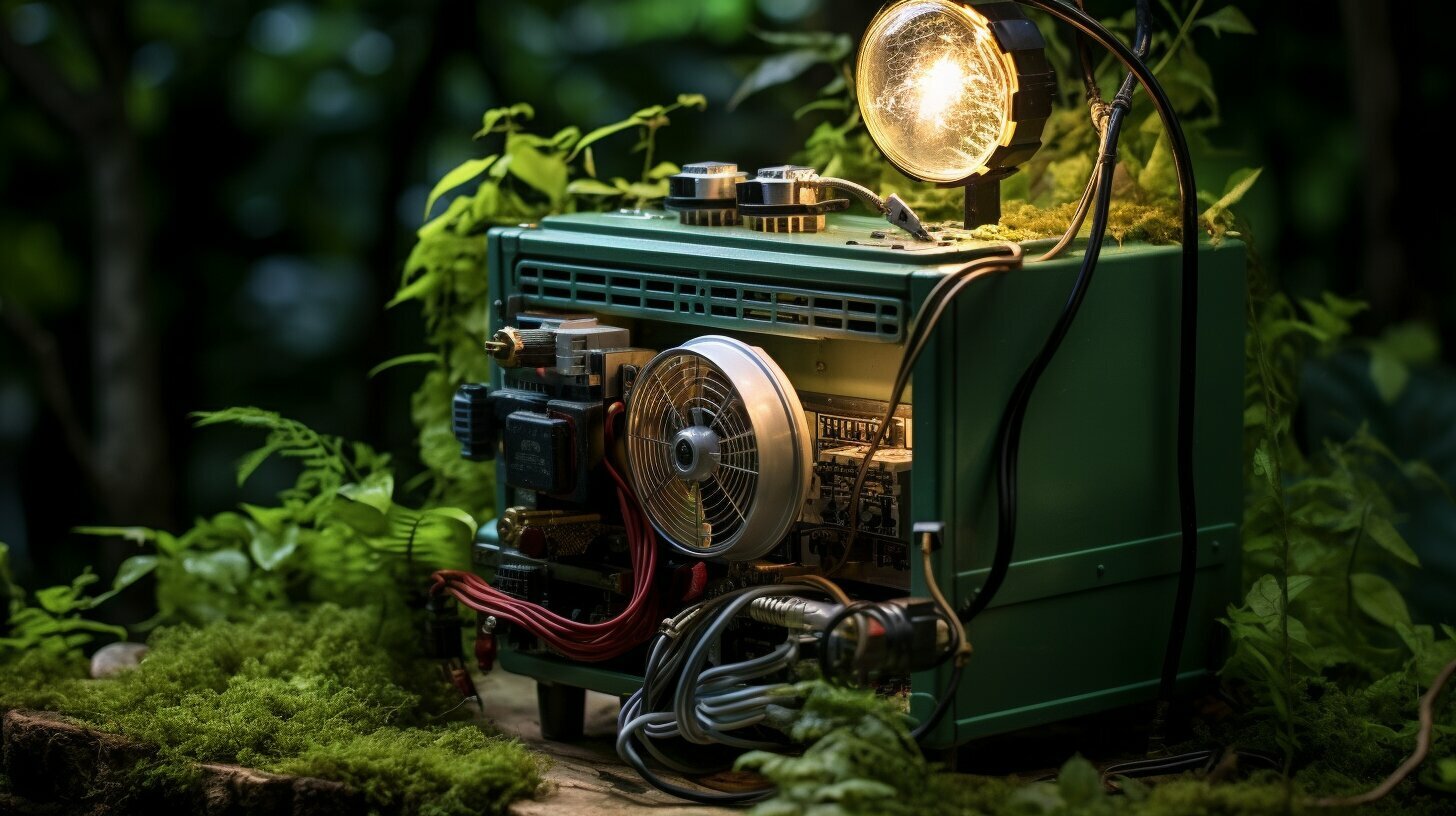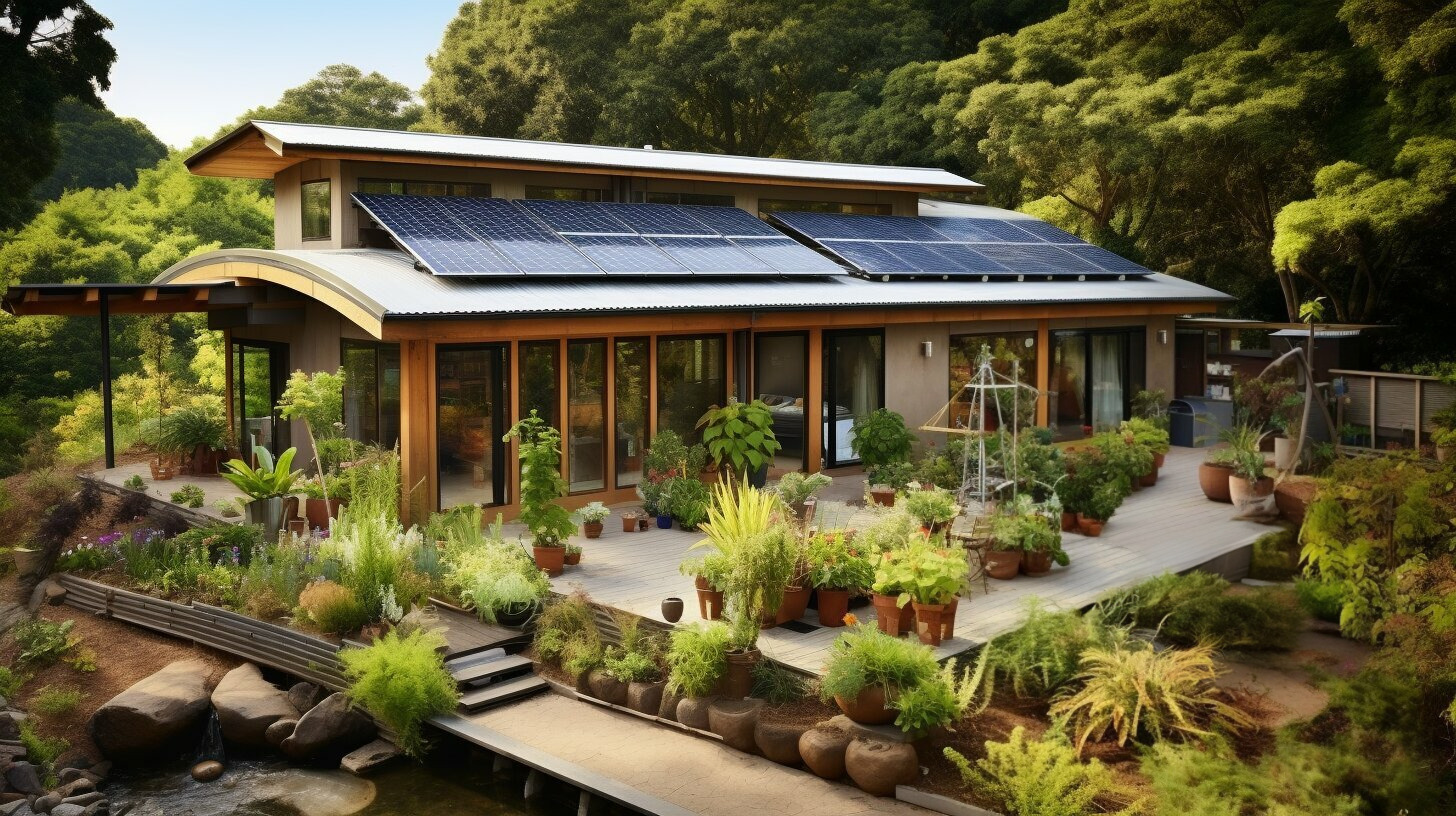Welcome to the world of off grid survival, where self-sufficiency and living in harmony with nature are integral to thriving. In this comprehensive guide, we’ll equip you with the essential skills, tips, and tools needed for a self-reliant life. Whether you’re interested in sustainable living, emergency preparedness, or wilderness survival, this article will provide you with everything you need to know to live off the grid.
When it comes to off grid living, it’s important to understand that it’s more than just a lifestyle choice. Off grid living is a way to be prepared for any situation and to be self-reliant without relying on modern amenities. From sourcing your own food and water, to generating your own power, the skills and knowledge you’ll gain from this guide will serve you well in any scenario.
Key Takeaways
- Off grid living means being self-sufficient and living in harmony with nature.
- Off grid living is a way to be prepared for any situation and to be self-reliant without relying on modern amenities.
- The skills and knowledge gained from this guide will serve you well in any scenario.
- Off grid living involves sourcing your own food, water, and power.
- Off grid living is more than just a lifestyle choice, it’s a way of life.
Understanding Off Grid Living
To truly master off grid survival, you must first understand the concept of off grid living. The idea of self-sufficiency, living sustainably, and creating a harmonious life with nature is what off grid living is all about. It means being free from the constraints of modern society and becoming self-reliant in every aspect of your life.
Off grid living is not just a lifestyle choice, it is a mindset that prioritizes self-sufficiency and sustainability in all aspects of life. It involves adopting practices like growing your own food, using renewable energy sources, and reducing waste. By doing so, you can minimize your impact on the environment while also developing the skills needed for off grid survival.
Disclosure: When you buy through links on our site, we may earn an affiliate commission.
To embrace off grid living, you must be willing to learn and adapt to new ways of living. It requires a certain level of creativity, resourcefulness, and resilience. But the rewards are plentiful, including a greater sense of freedom, independence, and connection to nature.
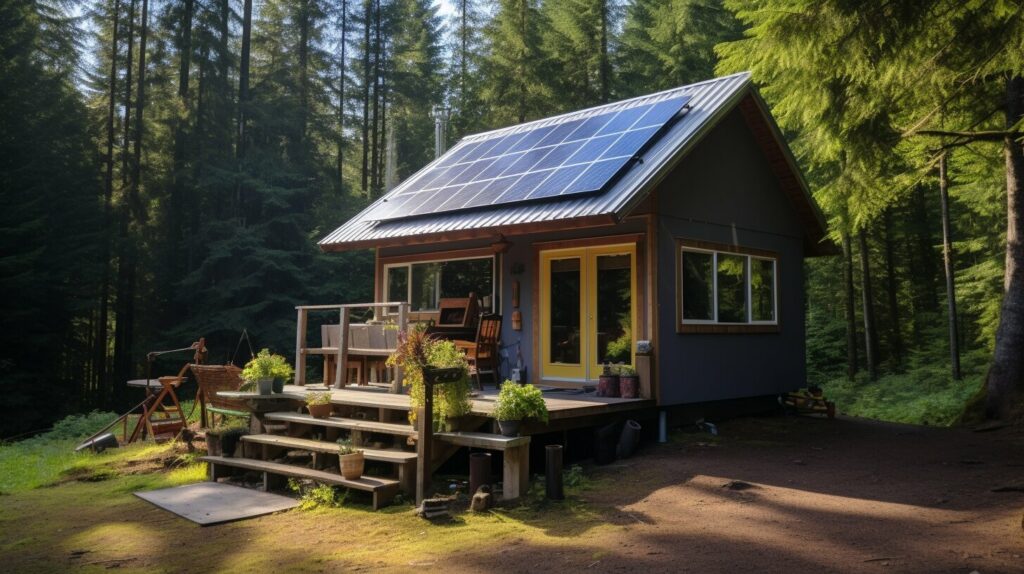
Whether you’re looking to live off the grid full-time or simply interested in developing your survival skills, understanding the principles of off grid living is essential. In the following sections, we’ll explore the necessary skills, tools, and techniques needed to thrive off the grid.
Essential Survival Skills
When it comes to off grid survival, having the right skills can mean the difference between life and death. Here are some survival tips, techniques, and outdoor skills you need to master:
Fire-making
Learning how to start a fire is one of the essential skills for off grid living. Whether you need to stay warm, cook food, or signal for help, fire is your most important survival tool. You can start a fire using different techniques such as flint and steel, fire plough, and bow drill. Keep in mind that certain materials burn better than others, so it’s important to know what to look for in your environment.
Shelter-building
Building a shelter is another vital skill for outdoor survival. In order to protect yourself from the elements, you need to know how to construct a shelter using natural materials like branches, leaves, and moss. A good shelter should keep you dry, warm, and safe from animals and insects.
Foraging and Hunting
Knowing how to find food in the wild is crucial for long-term survival. You need to learn how to identify edible plants and berries, as well as how to catch fish and hunt game. Remember to always follow ethical and sustainable practices when foraging and hunting.
Navigation
Getting lost in the wilderness can be dangerous, which is why navigation is an important outdoor skill to have. Learn how to use a map and compass, and practice orienteering in different terrains. You can also use natural signs like the stars and the sun to navigate your way.
First Aid
Injuries and illnesses can happen when you’re off the grid, so knowing basic first aid can save a life. Learn how to treat burns, cuts, fractures, and other common outdoor injuries. Carry a first aid kit with you at all times and know how to use it properly.
These are some of the essential survival tips, techniques, and outdoor skills you need to master for off grid living. By honing these skills, you’ll be better equipped to handle any situation that comes your way.
Building a Self-Sufficient Homestead
Living off the grid requires a self-sufficient homestead, where you can grow your own food, raise animals, and harness renewable energy sources. Building and maintaining a self-sufficient homestead requires a combination of knowledge, hard work, and dedication.
When starting a homestead, it’s important to assess your land and resources. Consider factors such as soil quality, water sources, and climate. Then, plan your homestead layout and choose the crops and animals that are best suited for your land.
Creating a sustainable food supply is a key component of self-sufficient living. You can grow vegetables, fruits, and grains using traditional farming methods, or implement techniques such as hydroponics or aquaponics. Raising animals, such as chickens, goats, or cows, can provide a source of protein and dairy products.
In addition to food production, off grid living requires a reliable source of energy. Solar panels, wind turbines, and hydroelectric generators can provide electricity for your homestead. Water filtration systems and gray water recycling can also help you conserve resources.
Homesteading also requires a variety of hand tools for tasks such as planting, harvesting, and carpentry. Basic equipment such as saws, axes, and hammers should be part of your toolkit. Communication devices, such as radios or satellite phones, can also be useful in emergency situations.
Homesteading is not just about the physical aspects, however. It requires mental and emotional resilience as well. You must be prepared to adapt to new challenges and accept the inevitable setbacks that come with living off the grid. Developing a positive mindset and a strong sense of self-reliance is essential for long-term success.
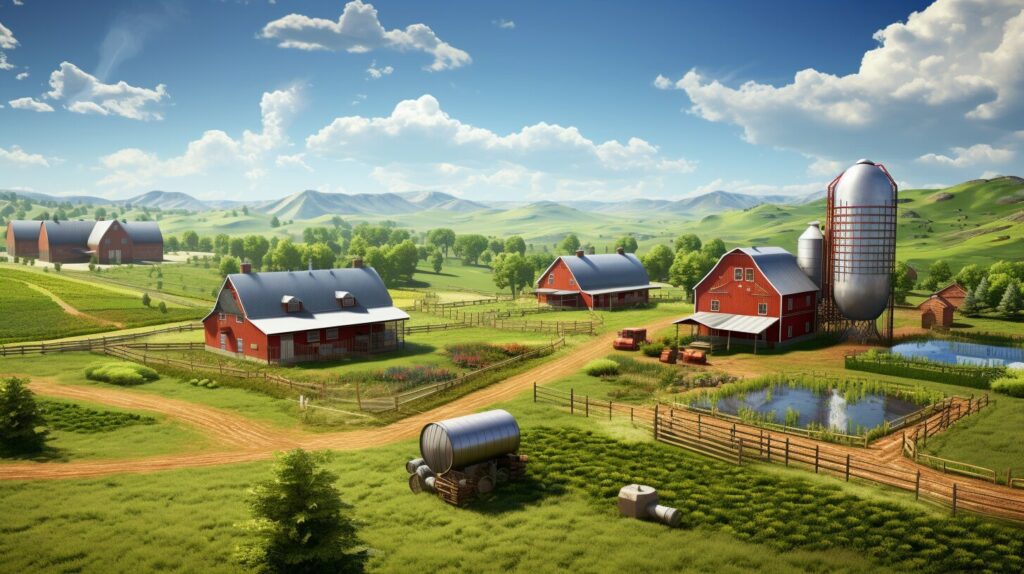
Building a self-sufficient homestead is a challenging but rewarding experience. Whether you’re interested in homesteading as a lifestyle choice or as a way to prepare for emergencies, it’s important to approach it with a sense of dedication and a willingness to learn. By embracing self-sufficiency and homesteading techniques, you can create a sustainable and fulfilling life off the grid.
Emergency Preparedness
When living off grid, being prepared for emergencies is essential. While you may have developed the necessary survival skills, it’s important to have a plan in place for unexpected situations. Your emergency preparedness plan should cover everything from natural disasters to medical emergencies.
Start by identifying potential threats in your area, such as hurricanes, wildfires, or severe winter storms. Research the best ways to stay safe during these events and make a plan with your family or community. Ensure that everyone knows what to do in case of an emergency, including evacuation routes and communication protocols.
Next, assemble an emergency kit with the necessary supplies, including food, water, first aid, and shelter. Make sure that your kit is easily accessible and regularly updated. Consider investing in alternative power sources, such as solar panels or generators, to ensure access to power during power outages.
Communication is also crucial during emergencies. Without access to traditional communication methods like cell phones or landlines, you may need to rely on alternative options, such as a two-way radio or satellite phone. Make sure that these devices are in good working condition and that you know how to use them.
Finally, practice your emergency plan regularly to ensure that everyone is prepared. Conduct drills and simulations to test your plan and identify any areas that need improvement. With a well thought out and practiced emergency preparedness plan, you can rest easy knowing that you and your loved ones are ready for anything that comes your way.
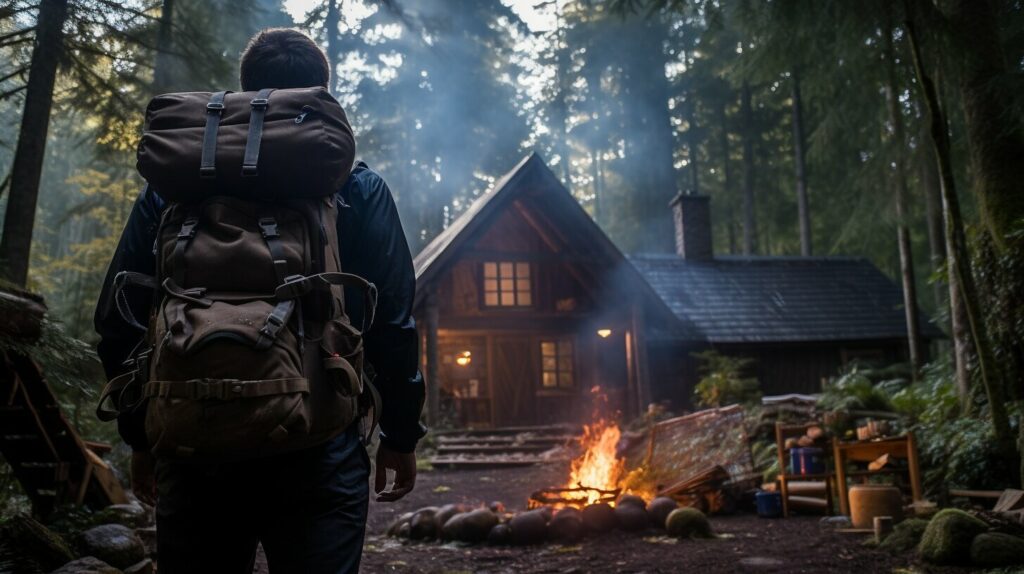
Wilderness Survival Techniques
When you’re living off the grid, you’ll need to know wilderness survival techniques to help you navigate any terrain. Whether you’re lost or exploring, these skills can be critical to your survival.
First and foremost, you need to know how to find water. Although you may think you can survive without water for a few days, it only takes a short period to become dehydrated. Learn how to create a water filtration system and how to find safe sources of freshwater to ensure you stay hydrated.
The next skill to focus on is shelter-building. Whether it’s hot or cold outside, you need to protect yourself from the elements. Learn how to build a shelter that can keep you dry, warm, and safe from any dangerous animals in the area.
Foraging is another important skill to have when living off the grid. Learn about edible plants and how to identify them, and discover how to catch small game like rabbits and squirrels to supplement your diet.
Navigation is also crucial for wilderness survival. You need to know how to use a map and compass to help you find your way, but you should also know how to navigate using natural landmarks like the sun, stars, and moon.
Lastly, you need to know basic first aid. Accidents can happen anytime, anywhere, and knowing how to treat injuries can make all the difference in a survival situation. Learn how to treat wounds, fractures, and other common ailments, and make sure to keep a first aid kit with you at all times.
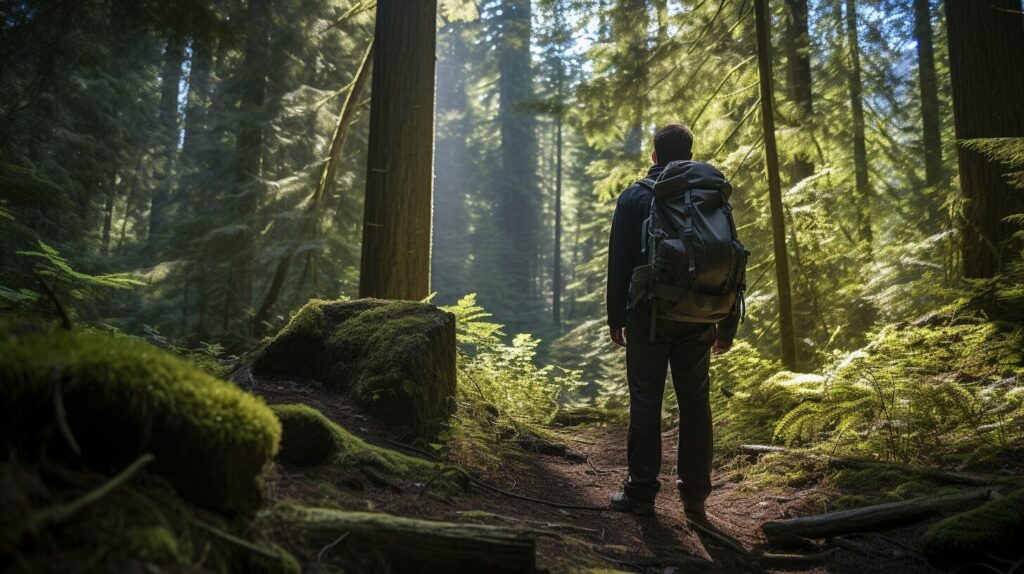
“Remember, when you’re out in the wilderness, you’re not always at the top of the food chain.”
By mastering these wilderness survival techniques, you can feel confident in your ability to navigate any terrain and handle any situation that comes your way.
Mastering Off Grid Cooking
One of the most satisfying experiences of off grid living is cooking your own food from scratch. However, cooking off the grid without the luxuries of a traditional kitchen can be a daunting task. Fortunately, with the right tools and a little bit of practice, you can become a master of off grid cooking.
One of the most essential tools for off grid cooking is a reliable camp stove. Look for stoves that are lightweight, durable, and easy to operate. You may also want to consider investing in a solar oven or a wood-burning stove for a more sustainable cooking solution.
When it comes to cooking off the grid, it’s important to rely on ingredients that can be stored for long periods of time without refrigeration. Stock up on essentials like canned goods, dried beans, and grains. Dried herbs and spices are also great for adding flavor to your meals.
Foraging for wild edibles can also be a great way to supplement your off grid pantry. Look for fruits, nuts, and edible plants that grow in your local area. Just be sure to do your research beforehand to ensure you’re not eating anything poisonous.
When it comes to cooking methods, it’s important to be versatile. Learn how to cook with a Dutch oven, use a griddle over an open flame, or make a simple pot hanger to cook over a fire. Experiment with different methods to find what works best for you.
Finally, don’t forget about food safety. Without refrigeration, it’s important to take extra precautions to ensure your food stays fresh. Wash your hands and utensils thoroughly, and be sure to cook your food to the appropriate temperature.
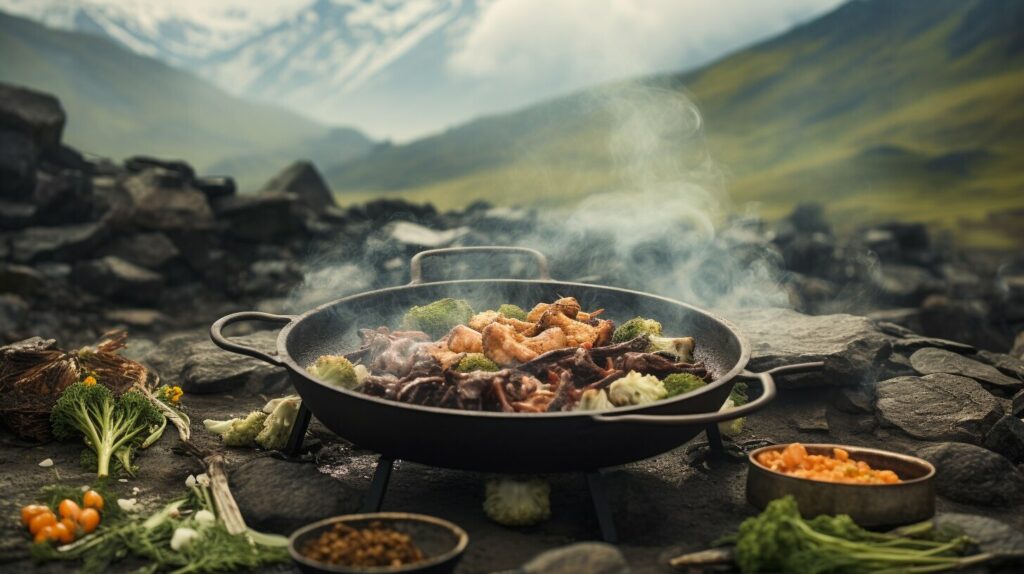
“Cooking off the grid requires unique skills and tools. Discover tips and techniques for cooking without electricity or traditional kitchen appliances, and learn how to make the most of your off grid pantry.”
By mastering the art of off grid cooking, you can enjoy delicious, home-cooked meals while living a self-sufficient lifestyle.
Tools and Equipment for Off Grid Living
Living off the grid requires a unique set of tools and equipment to support self-sufficiency and sustainability. Here are some key items to consider when building your off grid setup:
| Tools | Equipment |
|---|---|
| Saw: A saw is a versatile cutting tool for clearing brush, building shelters, and crafting furniture. | Solar Panels: Solar panels provide renewable energy for powering your off grid setup. |
| Axe: An axe is necessary for chopping wood for fuel and building materials. | Composting Toilet: A composting toilet allows for eco-friendly waste disposal without relying on a sewage system. |
| Knife: A good quality knife is essential for various tasks, including food preparation, tracking, and hunting. | Water Filtration System: A water filtration system ensures that your water supply is clean and safe to drink. |
| Shovel: A shovel is useful for digging latrines, building root cellars, and landscaping. | Communication Devices: Communication devices like a two-way radio or satellite phone can provide a vital lifeline in emergencies and allow you to stay connected with the outside world. |
While these tools and equipment are crucial for off grid living, it’s important to remember that each setup is unique to the individual or family. Assess your needs and consider what tools and equipment will best suit your lifestyle.
By investing in the right tools and equipment, you can create a self-sufficient lifestyle that is both sustainable and fulfilling. Whether you’re building a homestead or embracing the wilderness, having the right gear can make all the difference in the success of your off grid living.
Developing Mental and Emotional Resilience
Living off the grid is a rewarding yet challenging lifestyle that requires more than just physical skills. To truly thrive off the grid, it’s essential to develop mental and emotional resilience. Here are some tips for building resilience in the face of challenges:
- Practice mindfulness: Living off the grid often means living a slower, more intentional life. Take time each day to practice mindfulness, whether it’s through meditation, yoga, or simply taking a walk in nature.
- Cultivate a positive mindset: Adopting a “can-do” attitude can go a long way towards overcoming obstacles. Focus on solutions rather than problems, and practice gratitude for the blessings in your life.
- Stay connected: While living off the grid can be isolating, it’s important to stay connected with loved ones and like-minded communities. Whether it’s through social media, online forums, or in-person gatherings, having a support system can help you weather tough times.
- Educate yourself: Learn as much as you can about off grid living and wilderness survival. The more knowledge you have, the better equipped you’ll be to handle any situation.
- Practice self-care: Living off the grid can be physically demanding, so it’s important to take care of your body and mind. Get plenty of rest, eat healthily, and make time for activities that bring you joy.
- Be adaptable: Off grid living requires flexibility and adaptability. Learn to embrace change and view challenges as opportunities for growth and learning.
Incorporating these practices into your daily life will help you build the mental and emotional resilience needed to thrive off the grid.
Conclusion
Off grid survival is not just a lifestyle, it’s a mindset. By embracing self-sufficiency, emergency preparedness, and sustainable practices, you can lead a fulfilling life off the grid while being prepared for any situation.
Remember to continue honing your outdoor skills, such as fire-making, shelter-building, foraging, and navigation. These skills are essential for thriving in the wilderness.
Building a self-sufficient homestead is another important aspect of off grid living. Consider growing your own food, raising animals, and harnessing renewable energy sources to create a sustainable lifestyle.
Emergency preparedness is crucial when living off the grid. Develop a comprehensive emergency plan and stock up on essential supplies and equipment.
Off grid cooking is also unique and requires different skills and tools. Learn how to cook without electricity or traditional kitchen appliances, and make the most of your off grid pantry.
Lastly, mental and emotional resilience are just as important as physical skills. Overcoming challenges, adapting to new situations, and maintaining a positive mindset are crucial components of off grid survival.
So, master the art of off grid survival with these skills, tips, and tools while embracing sustainable living and outdoor skills. Your journey to self-sufficiency begins now!
FAQ
Q: What is off grid living?
A: Off grid living refers to a lifestyle that is not reliant on public utilities such as electricity, water, or gas. It involves being self-sufficient and generating your own resources, often through renewable energy sources, and living in harmony with nature.
Q: Why should I consider off grid living?
A: Off grid living offers numerous benefits such as increased self-sufficiency, reduced reliance on external resources, lower environmental impact, and the opportunity for a simpler, more sustainable lifestyle.
Q: What are some essential survival skills for off grid living?
A: Essential survival skills for off grid living include fire-making, shelter-building, foraging for food, navigation, and basic first aid. These skills are crucial for self-reliance and can help you survive in the wilderness.
Q: How do I build a self-sufficient homestead?
A: Building a self-sufficient homestead involves various aspects such as growing your own food, raising animals for sustenance, and harnessing renewable energy sources like solar power. It requires careful planning, resource management, and a commitment to sustainable practices.
Q: How can I prepare for emergencies while off the grid?
A: To prepare for emergencies off the grid, create a comprehensive emergency preparedness plan that includes stockpiling essential supplies, developing communication strategies, and learning basic first aid. It’s important to be self-reliant and prepared for any unforeseen circumstances.
Q: What wilderness survival techniques should I learn?
A: Navigating wilderness survival involves skills such as map reading, orienteering, finding food and water sources, building temporary shelters, and understanding how to stay safe in different environments. Learning these techniques will enhance your ability to survive and thrive in the wilderness.
Q: How can I cook off the grid without electricity?
A: Cooking off the grid without electricity requires alternative methods such as using propane stoves, wood-burning stoves, solar ovens, or open fires. It’s important to learn how to adapt your cooking techniques to these off grid options.
Q: What tools and equipment do I need for off grid living?
A: Essential tools and equipment for off grid living include hand tools for gardening and construction, solar panels for generating electricity, water filtration systems for clean drinking water, and communication devices for staying connected.
Q: How can I develop mental and emotional resilience for off grid living?
A: Developing mental and emotional resilience requires practicing mindfulness, learning stress management techniques, and cultivating a positive mindset. Embrace the challenges of off grid living as opportunities for personal growth and self-discovery.

